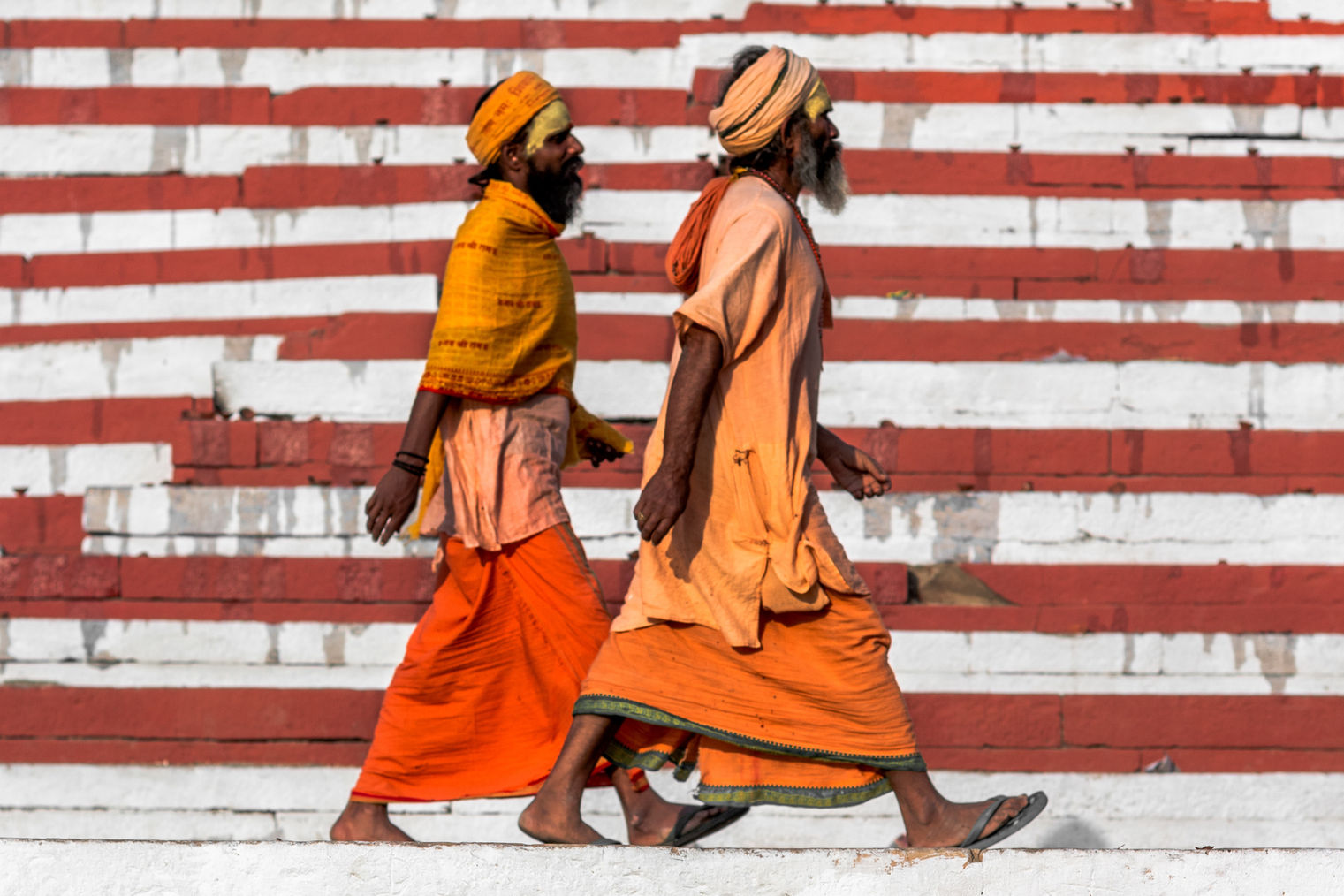




Atman, Karma, Dharma, Samsara & Moksha
Hindus generally accept the doctrine of transmigration and rebirth and the complementary belief in karma. The whole process of rebirth, called samsara, is cyclic, with no clear beginning or end, and encompasses lives of perpetual, serial attachments. Actions generated by desire and appetite bind one’s spirit (jiva) to an endless series of births and deaths. Desire motivates any social interaction (particularly when involving sex or food), resulting in the mutual exchange of good and bad karma.
In one prevalent view, the very meaning of salvation is emancipation (moksha) from this morass, an escape from the impermanence that is an inherent feature of mundane existence. In this view the only goal is the one permanent and eternal principle: the One, God, brahman, which is totally opposite to phenomenal existence. People who have not fully realised that their being is identical with brahman are thus seen as deluded.
Fortunately, the very structure of human experience teaches the ultimate identity between brahman and atman. One may learn this lesson by different means: by realizing one’s essential sameness with all living beings, by responding in love to a personal expression of the divine, or by coming to appreciate that the competing attentions and moods of one’s waking consciousness are grounded in a transcendental unity—one has a taste of this unity in the daily experience of deep, dreamless sleep.
Atman
Atman basically means your eternal self, the spiritual essence of who you are. It is not the body you inhabit; nor is it not the sum total of your material possessions. It is the spiritual you. Atman is the spiritual essence of who 'I am.'
The Western Judeo-Christian system's closest match to atman is probably their use of the word 'soul.' However, there are some huge differences. For instance, the Western Judeo-Christian system tends to believe when a person dies their soul travels on to heaven or hell. In other words, paradise or eternal suffering are the end of the road.
This is not the case with Hinduism's atman. Instead, it is believed that a person's atman is reincarnated, only to be housed in another physical, but again temporary, body.

Karma
“Renunciation and performance of action both lead to salvation, but of the two karma yoga is better than sannyasa.”
- Bhagwad Gita
Karma is the cosmic principle according to which each person is rewarded or punished in one incarnation according to that person's deeds in the previous incarnations.
The sum of a person's actions in this and previous states of existence, viewed as deciding their fate in future existences.
Literally translated as "action", Karma is seen as bringing upon oneself inevitable results, good or bad, either in this life or in a reincarnation and is one of the means of reaching Brahman.
People in the Western Hemisphere often mistakenly think Karma is a Buddhist principle whereas the principle existed in Hinduism thousands of years before the Buddha popularised it in the 6th centry B.C. in India.

Dharma
Dharma is the religious and moral law governing individual conduct and is one of the four ends of life. It is a word without direct translation, but implies 'religion,' 'duty,' and 'righteousness.' It derives from a Sanskrit root word meaning 'to uphold or sustain'. The concept behind Dharma is anything that upholds or sustains a positive order. For example, an individual, a family, a community, a nation and the universe all help uphold order.
In addition to the Dharma that applies to everyone (sadharana dharma)—consisting of truthfulness, non-injury, and generosity, among other virtues—there is also a specific Dharma (svadharma) to be followed according to one’s class, status, and station in life.
Dharma is the power that maintains society, it makes the grass grow, the sun shine, and makes us moral people or rather gives humans the opportunity to act virtuously.
Dharma also means to act virtuously and righteously. That is, it means to act morally and ethically throughout one’s life. However, Dharma also has a secondary aspect; since Hindus believe that they are born in debt to the Gods and other human beings, Dharma calls on all Hindus to repay this debt. The five different debts are as follows: debt to the Gods for their blessings, debt to parents and teachers, debt to guests, debt to other human beings, and debt to all other living beings.

Samsara
Samsara, (Sanskrit: “flowing around”) in Indian philosophy, the central conception of metempsychosis: the soul, finding itself awash in the “sea of samsara,” strives to find release (moksha) from the bonds of its own past deeds (karma), which form part of the general web of which samsara is made.
Dharma is one’s duty to their families and their communities. By obeying Dharma, it creates good Karma thus shortening the amount of time one must endure the trials of Samsara.

Moksha
Hindus unearted the cosmic truth and principle that the soul passes through a cycle of successive lives (samsara) and its next incarnation is always dependent on how the previous life was lived (karma).
In a lifetime, people build up karma, both good and bad, based on their actions within that lifetime. This karma affects their future lives and existences. People must take responsibility for their actions either within this life time or the next. Death is a key part of this cycle and is treated with specific importance. Death is the last samsara (cycle of life) referred to as the 'last sacrifice'.
Moksha also known as Nirvana, is the end of the death and rebirth cycle and is classed as the fourth and ultimate artha (goal). It is the transcendence of all arthas. It is achieved by overcoming ignorance and desires. It is a paradox in the sense that overcoming desires also includes overcoming the desire for moksha itself. It can be achieved both in this life and after death.
